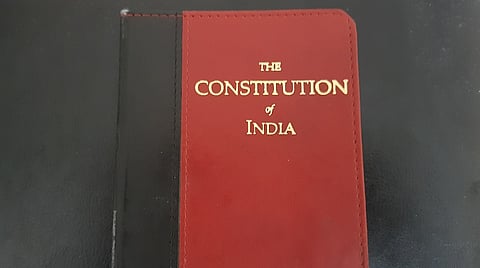
- News
- Columns
- Interviews
- Law Firms
- Apprentice Lawyer
- Legal Jobs
- हिंदी
- ಕನ್ನಡ

With a view to guard against communal clashes flared by the public conduct of religious events, the Madras High Court recently directed that organisers of religious events must provide a written undertaking to ensure that no hate speech or statement offensive to other religions is made during the conduct of the event.
Sitting at the Madurai Bench, Justice N Seshasayee was prompted to pass an order to this effect while dealing with a petition challenging the denial of permission to conduct a religious convention in Kanchiracode village, Tamil Nadu.
It was noted that in such cases, ordinarily, the Court would only instruct the concerned authorities to consider the applicant’s request for permission.
“A direction to an authority to do what he may have to do belongs to him, and this Court may not be interested to interfere with it unless palpable arbitrariness is displayed or malafide of the action is self-evident. Ordinarily, this Court merely directs the authority to consider any representation requiring him to do what is to be done. And, here there is not going to be any variance to the general norm adopted by the Court.“
However, the case also led Justice Seshasayee to emphasise that the organisers of religious events have a responsibility to ensure that the secular atmosphere in the vicinity of the event is not breached. As noted in the order,
“… this Court senses an urgent need to infuse responsibility among the active practitioners of every religion to ensure that they hold their religious meeting, congregation or convention without breaching the Constitutional spirit of secularism, for not everyone seems to take it seriously. While the Courts stay neutral, they still do not blindfold itself to the happenings around. “
The Court proceeded to remind that the Constitutionally guaranteed freedom of religion is not absolute to allow the wanton domination of one religion over the other. Pertinent observations made to this effect in the Court’s order include the following,
“The secular ethos that overflows from the Constitution has not provided a citizen a free way to profess, practise or propagate one’s religion and faith, nor any open space for demonstrating the domination of one religion over the other…
… They, [the framers of the Constitution] do not rush to declare the equality of the fundamental right to profess, practice, and propagate religion, but have introduced the rider restricting the right to freedom of religion inter alia to public order and other provisions of Part III of the Constitution first, before introducing the equality of right to religion. Article 19(2) also underscores public order as a restrictive factor on the fundamental right of free speech and expression…
The Preamble to the Constitution prides itself to constitute this nation into a secular Republic. However, without establishing equality in the conscience of the citizens, that may be a distant dream. And, at the ground level it can reduce public order that concerns both Articles 25(1) and 19(2) of the Constitution into empty-expressions…If We, the People, should have concern for secularism, then equality of religions must be let to occupy the consciousness of every religious group, since secular values cannot exist without respect to equality. Preserve equality, it will protect secularism should be the mantra. But if equality is disturbed, then as held in Rev. Stanislaus Vs State of Madhya Pradesh &Another … it ‘would impinge on the freedom of conscience guaranteed to all the citizens of the country alike.'”
The Court also expressed its dismay over sporadic instances where religious groups compete to dominate the other, disregarding the Constitutional scheme of religious equality.
“Sadly, on display are sporadic instances when every religious group competes to dominate with shameless quest its supremacy over the other. The Constitution has secured to everyone to praise their religion, but not to abuse another. Free speech cannot include hate speech, and if this difference is to be maintained, then responsibility attached to free speech should not be forgotten.”
In this backdrop, Justice Seshasayee noted that the Court may sometimes have to intervene to ensure that Constitutional rights of all are protected,
“When the Constitutional responsibility associated with equality of freedom of religion is eroded, and when the Executive responses are disproportionate to the rate of such degradation, it then becomes the responsibility of the Court to step in to ensure that citizens exercise their right to freedom of religion, respecting the equal freedom of others. “
Therefore, while directing the concerned authority to consider the petitioner’s application to conduct the religious convention in question, the Court also passed the following direction applicable to all cases where permission is sought to conduct religious events in public.
“Without getting into the set parameters based on which requests for holding any religious meeting or congregation or conventions are considered by the authorities, every authority who decides to grant permission for any such meeting or congregation or convention of every religious group shall obtain a written undertaking from the organizers of such meeting etc., that they would ensure that no speech offending or denigrating any other religion or their faith or their mode of worship or other practices associated with it will be made. And, every instance of breach of this undertaking should invite immediate prosecution of the speaker and the organizers.”
The petition before the Court was also closed with a direction to the concerned authority to consider the petitioner’s application, subject to the submission of a written undertaking in the above terms as well.
Read the order: